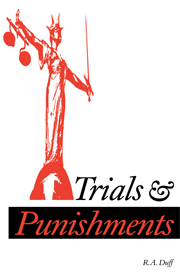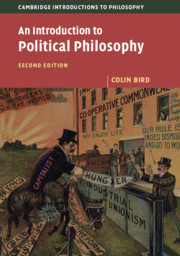Trials and Punishments
How can a system of criminal punishment be justified? In particular can it be justified if the moral demand that we respect each other as autonomous moral agents is taken seriously? Traditional attempts to justify punishment as a deterrent or as retribution fail, but Duff suggests that punishment can be understood as a communicative attempt to bring a wrong-doer to repent her crime. This account is supported by discussions of moral blame, of penance, of the nature of the law's demands, and of the proper meaning and purpose of the criminal process of trial and verdict: it deals both with the ideals that should inform a system of criminal law and the extent to which those ideals are actualised in existing institutions and practices. The conclusion is pessimistic: punishment cannot be justified within our legal system; and this gap between the ideal and the actual presents us with serious moral dilemmas.
Reviews & endorsements
'Duff's discussion of the traditional theories is incisive and persuasive …' The Times Literary Supplement
'What makes the book engaging is the well-argued claim that the two standard philosophies of punishment - deterrence and retribution - are seriously flawed. Eight outstanding chapters are devoted to a critical examination of recent philosophical and legal treatments of punishment …Duff's discussion is wide, and his unique perspective on the literature is interestingly and suggestively critical.' Choice
Product details
April 1991Paperback
9780521407618
332 pages
217 × 138 × 21 mm
0.454kg
Available
Table of Contents
- Preface
- Introduction
- 1. On being fit to be tried and punished
- 2. Criticism, blame and moral punishment
- 3. The law's demands
- 4. Trial and verdict
- 5. Trial and punishment
- 6. Consequentialist punishments
- 7. Varieties of retributivitism
- 8. Punishment, fairness and rights
- 9. Expression, penance and reform
- 10. The ideal and the actual
- Bibliography
- Indices.





